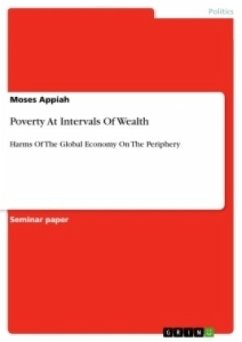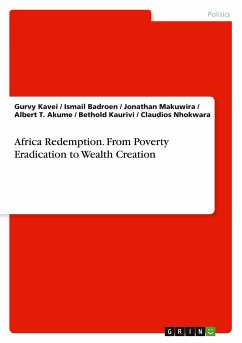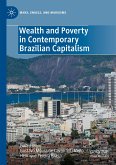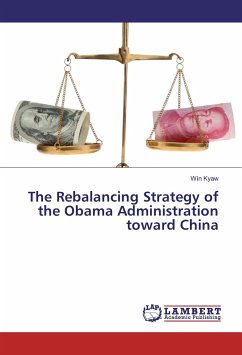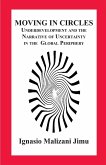Seminar paper from the year 2017 in the subject Politics - International Politics - Topic: Globalization, Political Economics, grade: A, , course: Globalisation and Global Justice, language: English, abstract: Several studies have contributed to the discourse of globalisation and how it has adversely impacted positively or negatively on the development of some third-world countries. Thus, in a way creating the incidence of a "race to the bottom" of some nations. This essay shares some perspectives on the ailing defects of the global economy in third-world countries. It problematises the process of globalisation as a network of capitalists that operates to the disadvantage of the periphery. A more complex dynamics of trade exchanges can be envisaged in an era where developed countries are increasingly subsidising industrial production; and on the other hand, the lack of opportunity for industrial growth in developing countries to match free-market competition within an emerging integration of global economies. Historical perspectives of colonialism and the continuous process of neoliberalism are an inevitable facet of this stymied discourse. Global trends on human development indexes indicate significant growth in sectors of health, education, and infrastructure in most developing countries, especially in the regions of Sub-Sahara Africa, Central and South Americas, and parts of Asia. Amidst these facts are also the widening gaps of inequalities that exist between the periphery and developed countries. Two main dimensions are engaged to examine the given circumstance of poverty at intervals of wealth. The first has to do with the concentration of wealth in highly developed countries and the second to do with resource-rich but third-world economies caught in the gambit of dependency, as they languish amidst their own natural and human resources. The interconnectedness of global institutions (actor-ship) roles within this discourse cannot be disjointed, but concerted, in those processes which often ignores contingencies of effects and harms asserted on the poor and vulnerable people.
Hinweis: Dieser Artikel kann nur an eine deutsche Lieferadresse ausgeliefert werden.
Hinweis: Dieser Artikel kann nur an eine deutsche Lieferadresse ausgeliefert werden.

